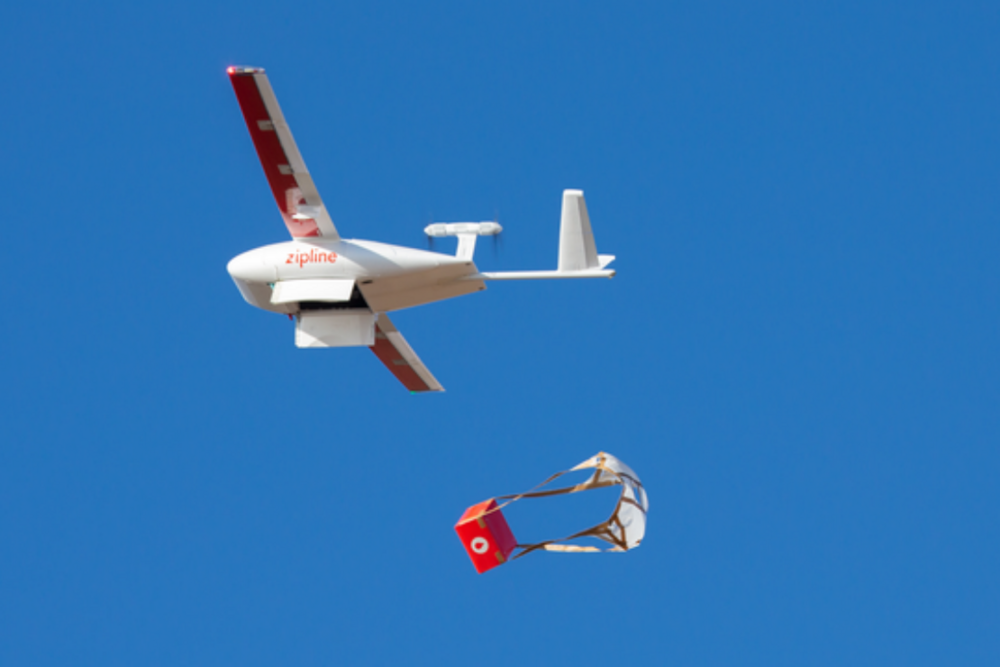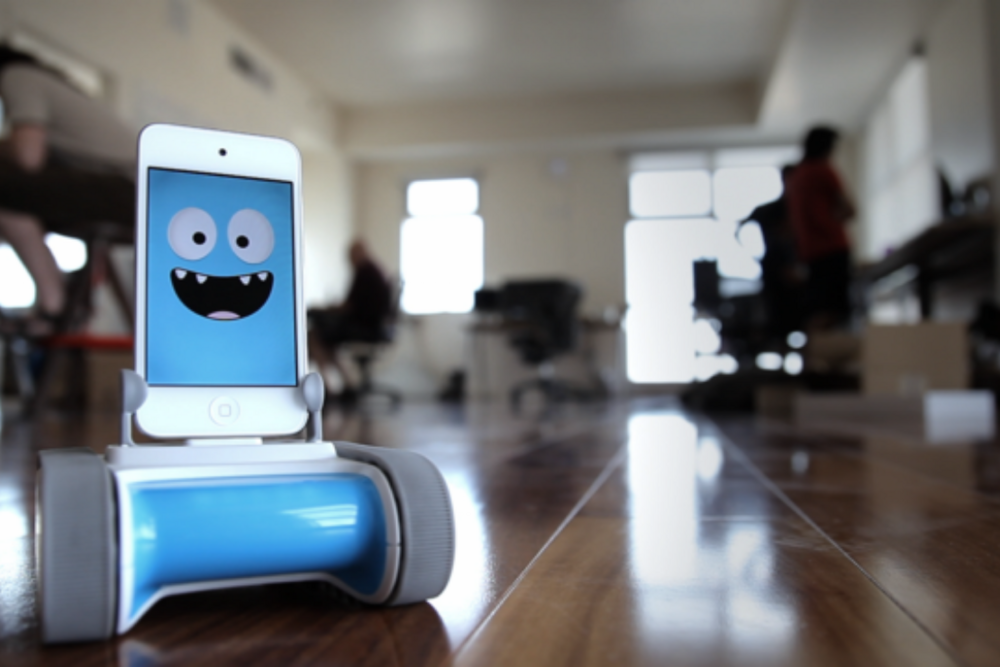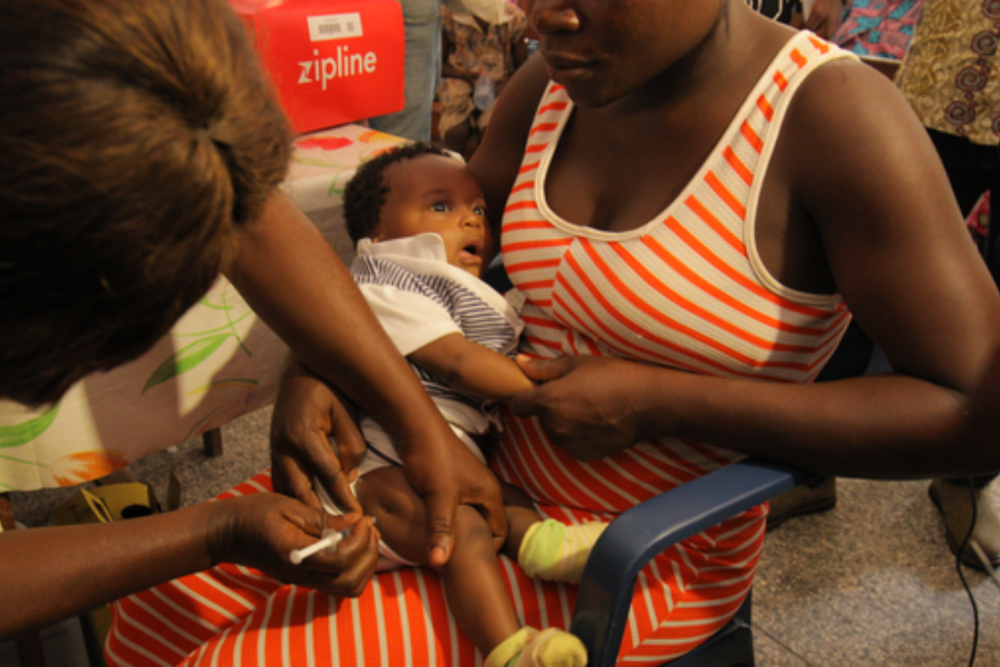Drone-Delivery Startup Zipline Now Valued at $1.2 Billion
May 20, 2019

We’re proud of Zipline for joining the unicorn club—but even more proud of all the lives they save
Team, team, and team. That’s what Techstars looks for in the startups we admit to our mentorship-driven accelerator programs, and the success and impact of Zipline, founded by Keller Rinaudo, Phu Nguyen, and Peter Seid, shows why.
Zipline, which uses drones to deliver lifesaving medical supplies to remote places, is now valued at $1.2 billion.
Zipline joined the exclusive unicorn club just a few days ago, joining Techstars companies SendGrid, PillPack, Digital Ocean, and DataRobot. But the company wasn’t always in the business of saving lives, or even running drones. When they first joined Techstars, they weren’t even called Zipline.
Crowdfunding an Adorable Robot

The Romotive robot
The team was part of Techstars Seattle Class 12 in the fall of 2011. Back then, the company was called Romotive, and it focused on turning smartphones into adorable robots. This was a pretty cool idea. But far more importantly, the Techstars Seattle team saw in these founders both passion for their robots and the crucial ability to receive feedback well, learn from constructive criticism, and make big changes when the situation called for it. The Seattle team were right, and the founders have applied these skills over the past eight years to get the company to where it is today.
Shortly after they finished the program, Romotive set out to crowdfund on Kickstarter with a goal of $32,000. They raised $114,796. In fall 2012, they closed a $5 million Series A just as they were returning to Kickstarter in 2012 a second time, intentionally using the crowdfunding platform as a tool to build community, ultimately raising $170,034 on their $100,000 goal. Press like TechCrunch, Fast Company, and The Wall Street Journal took notice.
Just a year out of program, and Keller and his team were doing everything right—and succeeding.
The long trip from A to B
But, as often happens in the startup world, things didn’t stay easy. In 2016, Zipline announced a $25 million Series B—five years after the original company launch. In the intervening years, especially when they stopped supporting Romo the robot, some reporters thought that the company was dead.
As it turns out, that was just the beginning of the really good stuff. Toy robots are great, and lots of kids were surely inspired to pursue their love of science and engineering by Romo the robot. We intend no disrespect for that early phase of the company—remember, that’s when we invested. But saving lives by airlifting blood to people in remote areas of Rwanda is the kind of thing that reinforces our belief that entrepreneurs make the world a better place.
Here’s what Keller told Pando in a 2016 interview:
The two things that made me want to start Romotive were that we thought there was this scale of smart phone components making new things possible in robotics and all this amazing new technology and no one was building something important with it for people’s lives.
Those two things are the guiding principles for everything we do here. What I’ve learned is we should set our sights higher and we should focus on things that would have a profound impact on people’s lives.
The value you can provide by seeing that someone is dying and they can’t get access to basic medical products and you can deliver it fast is so direct. Robots are really efficient at doing repetitive tasks. I’ve really sought out some of the most boring repetitive tasks on the planet and picked the ones I thought were the most important.
In that same interview, Pando founder Sarah Lacey asked Keller why he didn’t just close Romotive and start new. Here’s what he said: “I was 23 when I started this company and whole bunch of people believed in me. And you know, they believed in a very zany idea. Many people didn’t think a robotics company could be valuable at all. And when we decided we needed to build a very different product, it seemed the right thing to do to stay as the same company and double down and survive and prove that faith was well founded.”
We were some of those people who believed in Keller and his team from the very start.
Making the World a Better Place

These days, we’re not the only ones who believe in him. In 2017, Forbes named Keller to their 30-under-30 list. CNBC put Zipline at #39 on their Disruptor 50 list.
With this newly announced round of funding, CNBC reports that Zipline will set up delivery hubs at 2,600 health facilities in Rwanda and Ghana by the end of 2019, and it will start delivering medical supplies in the U.S. soon, starting in North Carolina. Each distribution center has the capacity to complete 500 deliveries, which translates to up to one ton of medicine and blood products, each day, according to the Zipline website.
CNBC also reports that so far, in Rwanda, Zipline drones have made more than 13,000 deliveries.
We at Techstars are hugely proud of Keller, his team, and Zipline for this $1.2 billion valuation. But we’re even more proud of them for truly making the world a better place.
